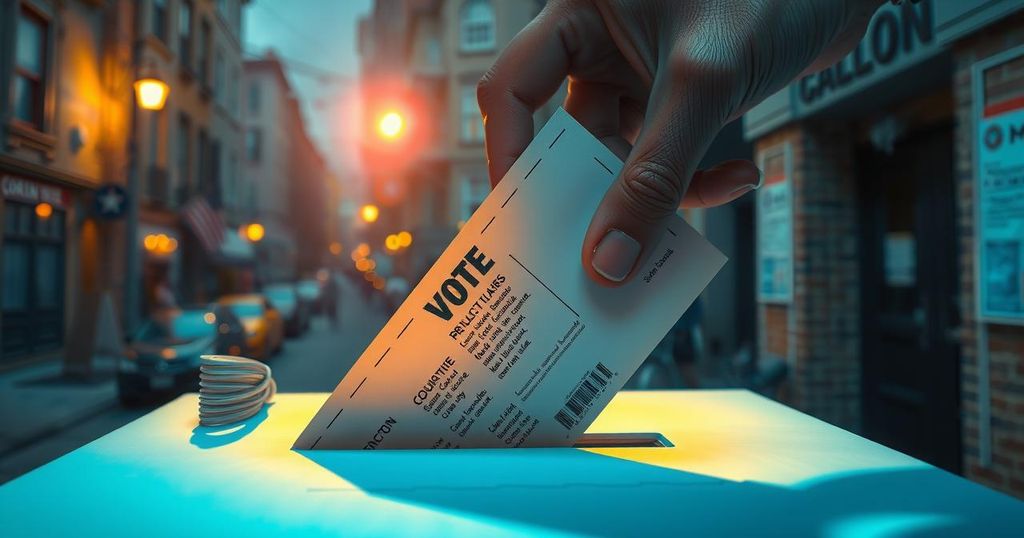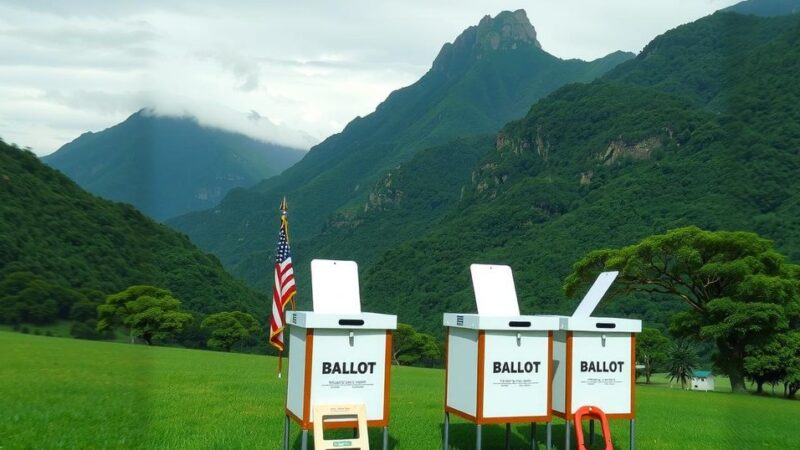Ecuador’s presidential runoff on April 13, 2025, features incumbent Daniel Noboa against challenger Luisa Gonzalez. The election, influenced by public anger over cartel violence, sees Noboa favoring hardline security policies while Gonzalez represents a leftist shift. Polls show a statistical tie, and voter turnout is crucial, with over 13 million Ecuadorians participating.
On April 13, 2025, Ecuadorians will vote in a highly contested presidential election, featuring incumbent Daniel Noboa and challenger Luisa Gonzalez. The election follows a tightly contested first round in February, where Noboa, known for his hardline security policies, narrowly emerged victorious. Gonzalez, a prominent leftist figure and the first woman presidential candidate, is gaining traction as the election has been heavily influenced by public outrage over escalating cartel violence in Ecuador.
In light of the prevailing violence, Noboa declared a 60-day state of emergency in Quito and other provinces, emphasizing the urgency of the situation. Once regarded as a safe nation, Ecuador has seen a dramatic rise in crime, with an alarming average of one murder per hour, as drug cartels seek to control lucrative cocaine trafficking routes.
Noboa, the privileged son of a wealthy businessman, has based his campaign on aggressive security tactics, including military deployments to violence-prone areas and actions against prominent drug figures, whilst seeking U.S. assistance. In contrast, the 47-year-old Gonzalez, framed as the empathetic political outsider, seeks to represent the impoverished Ecuadorians, especially amidst rising poverty levels exacerbated by the violence.
Polling data suggests the candidates are in a statistical deadlock. A victory for Noboa may solidify existing hardline policies, potentially strengthening ties with U.S. leadership. Conversely, Gonzalez’s election could denote a significant leftist shift, impacting Ecuador’s relations with the United States, particularly given her association with ex-president Rafael Correa, a highly polarizing figure in Ecuadorian politics.
Ecuadorian voters, numbering approximately 13.7 million, are expected to cast their ballots from 7 AM to 5 PM on election day. In their final push for votes, Gonzalez appealed to women by proposing financial support for single mothers, while Noboa offered a critique of existing political structures. Analysts caution that a narrow election outcome may lead to perceptions of electoral fraud, creating a government challenged by deep divisions among the electorate.
The impending presidential runoff in Ecuador showcases a critical juncture for the nation, characterized by a stark divide between security policy and social reform. As voters prepare to cast their ballots, the choices represented by Daniel Noboa and Luisa Gonzalez will not only shape domestic policy but also influence Ecuador’s international relationships. This election underscores the deeply entrenched issues of violence, poverty, and political polarization that have taken root in Ecuadorian society.
Original Source: www.bssnews.net






